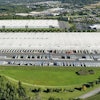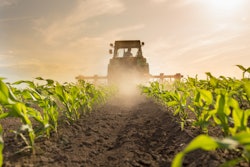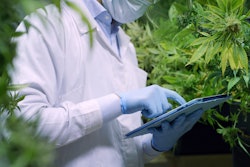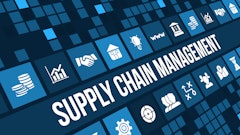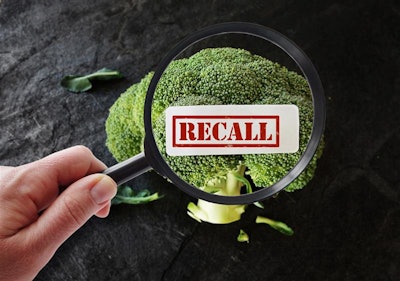
In just this quarter, Kraft Heinz, Kenosha Beef International, Mars Foods, Sabra Dipping Co. and Giant Food all experienced recalls in the first quarter of this year and weren’t even the only ones. Unfortunately, this comes with the territory in selling food, and when it comes to the cold chain and perishable goods, it only heightens recalls and monitoring.
“Temperature-controlled products are prime categories for potential recalls, often attributable to ‘lot-specific issues’ from the manufacturer/grower or expiration dates compliance while in storage,” says Brien L. Downie, president of Holman Logistics.
While recall problems typically arise from the source, they directly impact third-party logistics (3PLs) companies in major ways, who must immediately deal with the repercussions. Throughout the past few years, recalls became even more complicated as politics and the pandemic dramatically shifted food production and transportation, causing incredible shifts in processes as well as demand.
“Two major challenges over the past two years have been geopolitical politics and COVID-19,” says Jim Hardeman, chief product officer and director of marketing at CMX. “Both have been incredibly disruptive to supply chains. With tariffs, shifts in manufacturing, many cycles of closing and reopening of businesses, shifts in consumer demands, increased e-commerce, and manufacturing facilities opening and closing, or scaling back for worker safety or shortages, - 3PLs have had to flex to accommodate all these changes. With increased complexity comes increased risk.
“While 2020 saw a dip in FDA inspections, citations, and recalls due to COVID-19, the trends over the last 10 years show an increase in recalls,” he continues. “And, while there is much debate about whether that is because there is more risky food out there, or there are better detection methods, or there is much more public awareness and pressure on brands to voluntarily withdrawal products faster or face the reputational damage, - the need for better traceability and tools to manage recalls has never been greater.
“When it comes to the food supply chain, 3PLs play an important role between the supplier and the end retail food establishment. Because they are regulated facilities by the FDA due to holding product/or have product in transit, they need to be able to quickly identify, isolate, and remove/dispose of product per manufacturer’s instructions before quality and food safety issues become widespread crises.”
Technology can help
While recalls are imperative for health and safety factors, it also dramatically impacts multiple companies’ bottom lines. Despite gross fluctuations in the industry, 3PLs need to focus on preparedness as well as the ability to be flexible. Having procedures in place, as well as tapping into tracking and data are just a few best practices to help keep a stable bottom line and reduce outbreaks or safety hazards.
“Recalls and regulatory compliance in any area require discipline procedures, product/lot-code tracking, and communication systems that ensure any product at risk can be identified and handled in the most time-sensitive manner,” Downie continues. “Having an existing preparedness plan for handling recalls, and regulatory compliance is fundamental—if you fail to plan, then you’re planning to fail.”
Hardeman explains that in addition to tracking, data and other technology needs to be included so that 3PLs can take definitive action and act quickly.
“As products have become more complex and supply chains have grown longer, the ability to track and trace, and monitor the journey of the ingredients in our food has become more complicated,” Hardeman continues. “This is further compounded by the lack of data standards and system interoperability among trading partners.
“The FDA’s New Era of Smarter Food Safety Blueprint aims to address these challenges, but will require cooperation in data standards and innovative technology-driven solutions for compliance. As a result, we’ll see an accelerated movement towards creating data standards for exchanging critical tracking events and key data elements, which are required for record-keeping, traceability, and executing recalls.”
However, the concept of technology in the 3PL world and regarding recalls is much more than data and tracking. The 3PL and supply chain industry has its own set of specific technologies.
“In our world, we have three critical technologies: warehouse management systems (WMS), electronic data interchange (EDI), and Internet -of -Things (IoT) sensors, all of which help us maintain tight control over what goes in and out of our facilities and keep customer product within specified customer conditions,” Downie adds. “Having a solid WMS that is capable of lot-code or expiry date tracking is essential in the modern logistics game, as is a WMS that can export that data in a usable format that can be easily ingested into Excel, Tableau, or some other analysis tool. Fortunately, Holman recently invested in a highly capable WMS, ensuring that not only are we able to properly rotate product according to customer specifications, but also that we can export the data in a user-friendly format, helping us live up to our promise of extraordinary service. It’s one thing to have the data locked away in SQL tables of the WMS, it’s another to have it ready to go at a moment’s notice, as responding to a recall request is an incredibly time-sensitive issue.
“EDI capabilities are critical to enabling the supply chain participants to better view products throughout the supply chain, ensuring that communication is efficient and direct, and not prone to human error,” he says. “The more information is ‘touched’ (e.g. ‘and-keyed’ into a system from an email or phone call), the more opportunity for corruption of that information. EDI offers direct, system-to-system communication to reduce human error opportunities.
“There’s no substitute for living Gemba (i.e. going to the work and seeing it first-hand), but a close second can be IoT sensors that allow for 24/7/365 monitoring of a situation. Holman has custom built several digitally calibrated temperature sensors that are connected to our information management system. These IoT sensors automatically alert our team to potential issues, ensuring quick response times when temperatures approach specified thresholds.”
In a recent study, Quantzig found that smart sensors and predictive analytics, similar to what Hardeman explained, can track temperatures of food throughout the entire transportation process, beyond the in-house warehouse. Sensors will be able to tell when food enters a dangerous temperature on the road and possibly be contaminated, the transportation company or processor will know immediately and can check for any damaged goods and prevent a recall from happening before reaching consumers. Predictive analytics may be able to tell when food is about to go bad.
COVID-19 could lead to a better future
Recalls and food safety are always an important issue in 3PLs, but last year, safety and hygiene heightened dramatically after the Coronavirus disease (COVID-19) outbreak began. Once the disease became widespread, and shutdowns occurred, new protocols were put into place to help stop the spread in every industry, especially in the food and cold chain sectors. While the FDA took a step back in on-site auditing, companies had to ensure they were transporting food safely as well as socially distant for themselves.
“Implementation and adherence to rigorous COVID protocols are not optional,” Downie says. “It is critical to the ongoing operation of any storage or warehousing facility handling with or without a product recall event. However, people make the difference in successfully managing a recall or regulatory response issue. Keeping our people and the facilities we operate ‘COVID free’ will continue to be a ‘best practice’ requirement.
“Holman has thrived in the COVID environment, with our masking, distancing, and cleanliness initiatives working well thus far,” he adds. “In many ways, it’s been business-as-usual with a whole lot of hand sanitizer. The most critical aspect to ensuring our facilities remain ‘COVID free’ is engaging directly with our people, helping them to believe in the program so they want to follow along; not just do it as a result of being forced.”
Beyond regulations though, COVID-19 continues to disrupt the supply chain, which puts massive pressure on 3PLs dealing with recalls, and can even cause more recalls due to changes in demand. But, this major disruption might help for long-term resiliency.
“COVID has shown that supply chains can be easily disrupted and that we have an over-reliance on people and manual processes to keep them functioning properly (especially for food),” Hardeman says. “We’ve also seen that in many ways, we have too much information and data and not enough of the right information and data in a format that provides trading partners the visibility and interoperability across channels and systems.
“President Biden signed an executive order that calls for a 100-day review to assess vulnerabilities and areas of improvement in four major supply chain areas,” he adds. “The order also called for the review of six broader supply chains, including transportation and food production. And, while the primary goal may be to reduce our dependence on foreign suppliers and avoid shortages, it is also aimed at minimizing disruptions. This coupled with FSMA, and the FDA’s New Era of Smarter Food Safety, all lead to increased regulations and the need for advances in data, technology, and collaboration to overcome these challenges.”
Hopefully the safety challenges brought about throughout the pandemic will help build a future more resilient for recalls.


